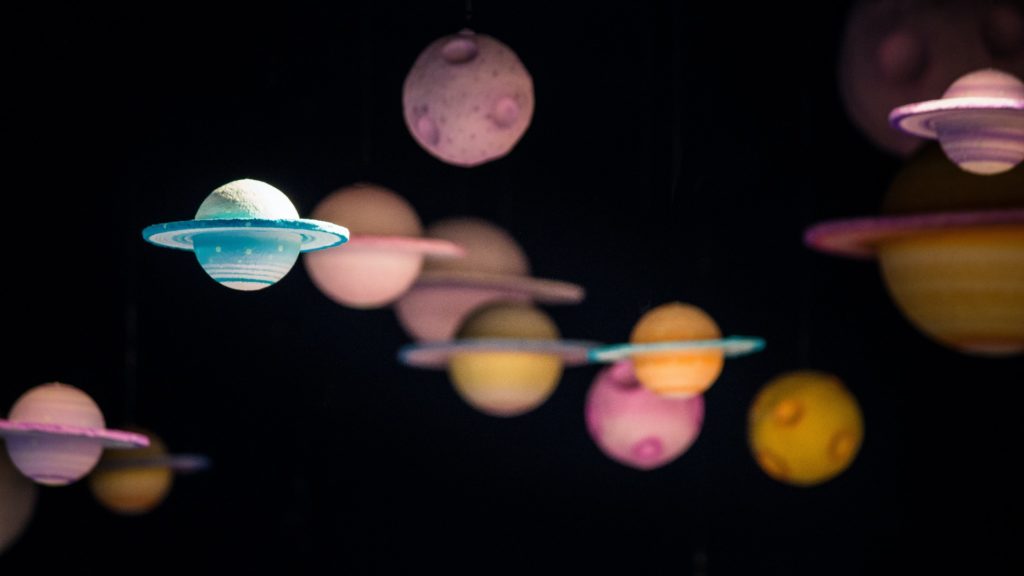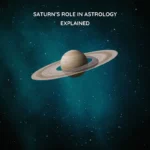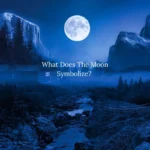How planets affect astrology

You may have heard some people talking about their “ruling planets.” Maybe something about ascendants and rising or whatnot.
This is no crazy stuff!
It just means that they were talking about the positions of the planets when they were born.
Astrology and astronomy both agree that the planets move according to the season. But the former believes that this is relevant to a person’s life.
It is no coincidence that a planet was in a specific position the moment you joined this world. Thus, it is essential to learn and understand why they were there.
Why did the planets get tied to astrology?
To understand this, it is best to go back to the widely accepted definition of astrology. Generally, astrology is defined as using the heavenly bodies’ position to determine their influence on our lives.
From this definition, we can grasp why the planets are relevant to this ancient art. Everything in the cosmos connects and influences what happens to each other.
The relationship between the other planets and the earth is even more vital. This is because they are in the same cosmic neighborhood (hello, solar system!).
You may also notice that the planets’ names in astrology are also the ones in astronomy. This goes back to ancient times when these two were the same.
It is important to note, though, that the sun and moon count as planets in astrology.
Astrology takes our perspective here on earth. When we look up at the sky, we see either one of these heavenly bodies.
They are also one of the most recognizable figures in the sky. Not to mention, they have huge influences in our natural world.
As we have all learned in science class, the sun initiates photosynthesis in plants. The moon influences the tides of the sea.
(And Mars is influencing Elon Musk to accelerate SpaceX operations LOL, just kidding. We respect your work, Elon!)
All things considered, it only makes sense that the planets influence our daily life.
How do the planets give their qualities to those born under them?

Planets naturally revolve around the sun. But they also have positions relative to ours.
The placements of the Zodiac are permanent. Thus, it is the movement of the planets around or near them that dictate their influence on a person born under a specific sign.
Astrologers believe that even one’s exact time of birth is crucial in determining their planetary placements. Some of the planets, like Mars and Venus, spin too fast because of their closeness to the sun.
Planetary placements are the exact positions of the planets the moment you were born. They influence your identity, personality, and your generation as well.
If you want to know your planetary placements, there are several free online calculators you can choose from.
Some even give you interpretations and the exact coordinates of the planets the moment you joined this world.
The influence of planets comes from the ancient gods whom they embody. In Western Astrology, practitioners use the Roman Pantheon.
(Though, it’s fair to point out that Uranus is the only Greek god in the brood.)
When a person is born, a planet may be hanging around another Zodiac sign (e.g., a Taurus with their Mars in Gemini).
This does not mean that Mars will not influence that person. Instead, it only means that the qualities of that planet will be “filtered” according to Gemini’s characteristics.
Going back to the example, the person is assertive and energetic, yet prone to losing their focus.
Another thing to point out is that the earth is not among the astrological planets. The reason for this is simple: heavenly bodies are the ones influencing earth.
Thus, it makes sense why the earth is not considered one of them. If this was otherwise, it would be like a toddler teaching their parents how to read- it’s just downright weird!
Are there any essential terms in planetary astrology?
Yes! There are quite a few of these and have a huge help in understanding planetary astrology.
Here are a few of these terms:
Transit: The time it takes for a planet to move between Zodiac signs
Rules: The sign a planet influences the most
Inner Planets: Planets that move from one sign to another for less than a year. These planets influence an individual the most.
Outer Planets: Planets that move from one sign to another for a year or more. Some of these planets influence entire generations.
(There’s also astrological houses to contend with, but it’s better to talk about it in another article. It’s complicated, and deserves a piece of its own.)
We held it off for so long. Now it’s time to meet the planets!
Astrological Planets and their Meanings
Inner Planets
Sun
Transit: Every Month
Rules: Leo
The sun influences a person’s true self. It focuses on a person’s ego, basic personality, and identity.
Example: A sun in Taurus means that a person is reliable and serious (even when they’re just playing Animal Crossing). Yet, it also means that they are very stubborn and refuse to budge from what they believe in.
Moon

Transit: 2 – 3 Days
Rules: Cancer
The moon concerns the most common moods people feel and how they handle their emotions.
Example: A moon in Leo means that a person is proud, self-centered, and needs validation. However, they are also very expressive of how they feel and have a clear vision of how they want things to go.
Mercury
Rules: Virgo
Transit: 3 – 4 Weeks
Mercury is the Roman god of communication and reason. Thus, this planet emphasizes how a person will articulate their thoughts and an overview of their intelligence.
Example: A Mercury in Taurus means that a person is efficient and thinks through things meticulously before believing in them. But at the same time, they are very narrow-minded and tend to discredit things that don’t agree with them.
Venus
Transit: 4 – 5 Weeks
Venus is the Roman goddess of love and attraction. Thus, this planet oversees how people want their relationships to go and what they find pleasing and delightful.
Example: A Venus in Taurus means that a person is a romantic. They love it when the “small things” get noticed in a relationship.
They also want an everlasting love that is both stable and consistent.
Mars

Transit: 6 – 7 Weeks
Mars is the Roman god of war. Thus, this planet links to a person’s “toughness”- their bold guts and drive for glory.
Example: A Mars in Gemini means that a person is quick in action and energetic. They assert themselves and intimidate others but sometimes tend to be absent-minded.
Outer Planets
Jupiter
Rules: Sagittarius
Transit: 12 – 13 Months
Jupiter is the Roman god of the sky. He is also the king of the gods and has a significant influence on how a person’s luck may turn out. Thus, this planet concerns with the abundance that a person will receive in their life.
Example: A Jupiter in Taurus means that a person will achieve stability and growth, provided that they will discern their actions well. They also value security and a profound understanding of all aspects of their life.
Saturn
Rules: Capricorn
Transit: 2 – 3 Years
Saturn is the Roman god of time. Thus, this planet influences a person’s commitment and approach to responsibilities.
Example: A Saturn in Taurus means that a person is very committed to what they are doing- but they are so focused that they often get stuck with it.
They are also painfully uncreative that they struggle with how to set their ideas apart from others.
Uranus
Rules: Aquarius
Transit: 7 Years
Uranus is the Greek primordial god of the heavens. He is one of the reasons why life exists here on earth. Thus, this planet links to weirdness and originality.
As said in the section on planetary terms, some planets influence generations more than individuals. Uranus is one of those planets.
For example, some millennials (especially those born in the late 90s) and most of Gen Z were born under Uranus in Aquarius.
What this means is that the youth today are defying the expectations of their elders.
They rebel against social conventions (such as gender norms) and usher in fresh ideas rooted in reason.
Neptune
Rules: Pisces
Transit: 14 Years
Neptune is the Roman god of water. Like the uncertainties of what lies under the ocean, it influences people’s hopes and dreams for the future.
Along with Uranus and Pluto, Neptune is one of the “generational” planets. This is no surprise, as its own orbit around the sun takes 165 years!
The majority of millennials, along with Gen Z kids born in the early 2000s, are born under Neptune in Aquarius.
This signifies how these people find hope in the advancement of the academe. They dream of a future driven by intellect and scientific progress.
It also speaks of how they like to analyze things, allowing them to see beneath the surface.
Pluto
Rules: Scorpio
Transit: 12 – 15 Years
Pluto is the Roman god of the underworld, afterlife, and wealth. Thus, this planet concerns with transformation, rebirth, and power.
This planet is unique for its place in the cosmos; even its own status is continually transforming.
Once thought to be the ninth planet, it was demoted to being a dwarf planet (but there are talks to put it back on its rightful position).
Pluto’s orbit is also weird and fascinating. It tilts, meaning it goes around the sun from up to down, then up again. All other planets go left to right!
These characteristics contributed to Pluto’s long journey between the Zodiacs. The duration of their stay under a sign is influenced by their distance from the sun at a given time.
Some boomers, all millennials, and early 2000s Gen Zs were born under Pluto in Sagittarius.
It means that they look forward to change and progress, not just for themselves but also for the world. They are confident that whatever the future holds is for the good of all.
These people also value independence and seek freedom and empowerment. They believe they can change the world, one person at a time.
Closing Thoughts – How planets affect astrology and zodiac signs
It is an exciting thought of how the planets that seem so far away can significantly influence our lives.
We like to think of them as something that is “just there.” But as Master Oogway in Kung Fu Panda has said, “There are no accidents.”
Everything in this universe is linked. From our lives to the beautiful patterns that constellations have in the night sky, it was all meant to be there.
The planets giving us their qualities is something to be thankful for. All of them help us understand ourselves even better and find our higher purpose in this world and beyond.
But you must bear in mind not to blame everything on the planets.
Indeed, the planets exercise their influence over you and the course of your life. Yet no one has full control, except for you.
You have free will and a mind able to think things through. When you feel like things aren’t supposed to be that way, act on it.
You don’t have to follow what the planets tell you about yourself or the world. Who on earth wants to be absent-minded for the sake of following their planetary placements?
Be aware of the weaknesses and flaws foretold by the cosmos. This way, you will be able to turn these into your strengths.
Nothing is more satisfying than the ability to defy expectations. Astrology may be the ancient art of prediction, but it also encourages you to transcend beyond what it tells you.
Understand the will of the heavens but take charge of your life.
Live the way you’ve always wanted, and to quote the great Paulo Coelho, “all the universe conspires in helping you achieve it.”





Waiting until it for filling